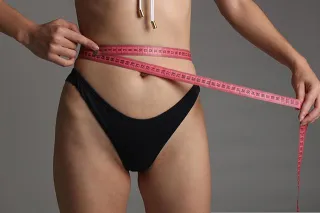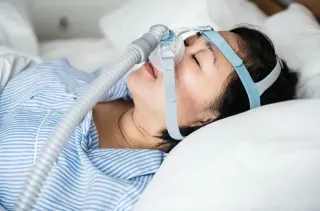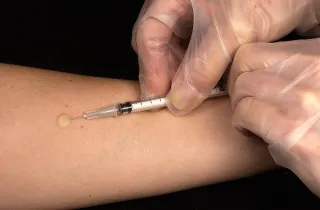
Unlock Lasting Weight Loss with Virtual Skinny Jab™: The Hypnotic Revolution!
Discover the power of the Virtual Skinny Jab™ Hypnotic Weight-Loss Solution. Ditch fad diets and injections for a holistic, hypnosis-based approach. Achieve sustainable weight loss without giving up y... ...more
(VSJ) Weight Loss
September 27, 2023•3 min read

Unraveling the Mystery: Where Does Weight Loss Happen First?
Dive into the science of weight loss patterns, exploring genetics, gender differences, and more. Discover where your body sheds pounds first and why. Unlock the secrets of individualized weight loss. ...more
(VSJ) Weight Loss
September 15, 2023•18 min read

Unlocking the Secrets: The True Science of Weight Loss
Dive deep into the science of weight loss, from metabolism to the power of the mind. Discover how diet, exercise, sleep, and even hypnosis play pivotal roles in shedding pounds sustainably. ...more
(VSJ) Weight Loss
September 14, 2023•16 min read

Can Weight Loss Cure Sleep Apnea? Delving into the Science and Facts
Exploring the link between weight loss and sleep apnea. Can shedding pounds alleviate or even cure this sleep disorder? Dive into the science and facts in our latest article. ...more
(VSJ) Weight Loss
September 13, 2023•2 min read

Are Weight Loss Injections Safe? Unpacking the Facts on Wegovy and Similar Brands
Wegovy, initially a diabetes medication, is now a weight loss injection. It promises weight reduction but has side effects like gastrointestinal issues. Consultation with healthcare experts is vital. ...more
(VSJ) Weight Loss
September 12, 2023•2 min read

The Yoga Path to Weight Loss: Mind, Body, and Soul
Discover the multifaceted benefits of yoga in aiding weight loss and promoting holistic well-being. ...more
(VSJ) Weight Loss
September 07, 2023•1 min read
There is a safer, easier way!
VIRTUAL SKINNY JAB™
Weight-Loss Solution

The only weight-loss solution you'll ever need.
A holistic approach that addresses mindset and lifestyle factors, for long-term sustainable weight management.
Begin Your
Weight-Loss
Journey
Take the First Step Below
Begin Your
Weight-Loss
Journey
Take the First Step Below
🌟 Ready to Start Your Weight Loss Journey? Schedule Your Weight-Loss Planning Session with Me Now! 🌟
It's time to break free from the endless cycle of weight loss and gain, and embrace a lifestyle filled with health, energy, and self-confidence. I'm here to guide you on your transformative journey towards sustainable weight loss.
During your personalized planning session, I will endeavor to understand your weight-loss challenges, provide effective solutions tailored to your unique situation, and create a roadmap for your journey to a healthier lifestyle.
Don't wait, slots are limited!
Take the first step towards your healthier self and schedule planning session with me now.
Begin Your Weight-Loss Journey
Take the First Step Below
Begin Your
Weight-Loss
Journey
Take the First Step Below
Text: (313) 362-4111
Email: michael@virtualskinnyjab.com

Copyright © 2023 Michigan Hypnosis Institute, LLC. All rights reserved.
Disclaimer: The content provided on this website, including but not limited to text, graphics, images, and other material, is for informational purposes only and is not intended as a substitute for professional medical advice, diagnosis, or treatment. This site offers health, wellness, fitness, and nutritional information and is designed for educational purposes only. You should not rely on this information as a substitute for, nor does it replace, professional medical advice, diagnosis, or treatment. If you have any concerns or questions about your health, you should always consult with a physician or other healthcare professional. The use of any information provided on this site is solely at your own risk. The author of this site is not a medical professional, dietitian, or mental health professional. The information contained herein is not intended to be a substitute for professional medical advice.
